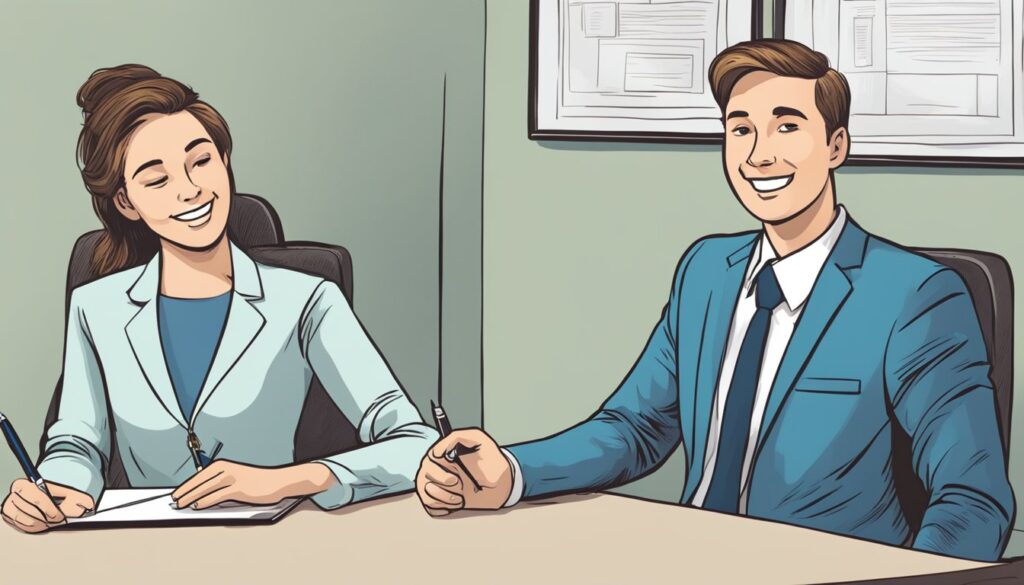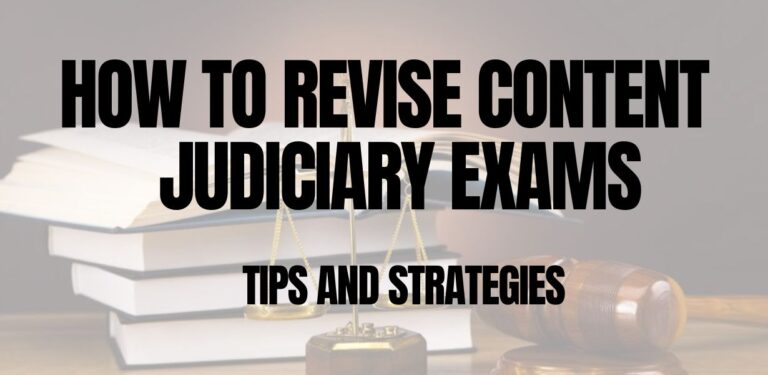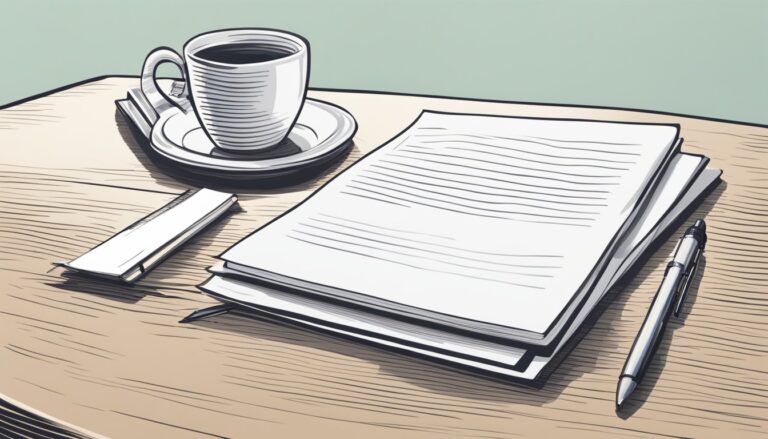101 Tips to Crack a Job Interview: Mastering Your First Impression

Landing the job you desire depends largely on how well you perform during the interview process. Interviews can be bit challenging, but with the right preparation and mindset, you can significantly increase your chances of success.
Your ability to communicate clearly, present your skills effectively, and demonstrate your suitability for the role will be evaluated. Treat each interview as an opportunity to learn and improve, regardless of the outcome.
Understanding the company’s culture, the job’s requirements, and how your skills align with the position is essential. Tailor your responses to highlight the contributions you can make to the team and how your experience prepares you to tackle job-specific challenges.
Remember that first impression matters, so pay attention to your attire, punctuality, and body language.

Mastering job interviews is a skill that can be learned and refined. Staying calm under pressure, thinking on your feet, and conveying your thoughts coherently are all aspects that improve with practice.
By embracing these 101 tips, you can present yourself as a compelling candidate, equipped to crack any job interview you face.
Page Contents
- 1 List of 101 Tips to Ace the Interview
- 2 Understanding the Interview Process
- 3 Preparation Strategies
- 4 Creating a Positive First Impression
- 5 Building Rapport with Interviewers
- 6 Presenting Your Professional Profile
- 7 Effective Communication Techniques
- 8 Handling Common Question Types
- 9 Nurturing a Confident Mindset
- 10 The Follow-Up
List of 101 Tips to Ace the Interview
- Research the company and position thoroughly
- Practice common interview questions
- Prepare specific examples of your achievements
- Dress professionally
- Arrive on time
- Bring extra copies of your resume
- Be confident and maintain good posture
- Make eye contact and smile
- Listen carefully to the interviewer’s questions
- Answer questions clearly and concisely
- Highlight your relevant skills and experiences
- Ask thoughtful questions about the company and role
- Show enthusiasm for the opportunity
- Be prepared to discuss your weaknesses and how you are working to improve them
- Follow up with a thank-you note after the interview
- Practice good hygiene and grooming
- Prepare for behavioral interview questions
- Be prepared to discuss your long-term career goals
- Research the interviewers, if possible
- Be prepared to discuss your salary expectations
- Practice active listening
- Be prepared to discuss how you handle conflict
- Show your passion for the industry
- Be prepared to discuss your experience working in a team
- Practice your handshake
- Prepare for case study or situational interview questions
- Be prepared to discuss your ability to work under pressure
- Show your problem-solving skills
- Be prepared to discuss your leadership experience
- Practice your elevator pitch
- Be prepared to discuss your ability to adapt to change
- Show your creativity and innovation
- Be prepared to discuss your experience with difficult clients or customers
- Practice your STAR (Situation, Task, Action, Result) stories
- Be prepared to discuss your experience with project management
- Show your ability to learn quickly
- Be prepared to discuss your experience with time management
- Practice your body language
- Be prepared to discuss your experience with public speaking
- Show your ability to prioritize tasks
- Be prepared to discuss your experience with data analysis
- Practice your storytelling skills
- Be prepared to discuss your experience with conflict resolution
- Show your ability to work independently
- Be prepared to discuss your experience with sales or persuasion
- Practice your negotiation skills
- Be prepared to discuss your experience with customer service
- Show your ability to handle rejection
- Be prepared to discuss your experience with technology or software
- Practice your active listening skills
- Be prepared to discuss your experience with social media
- Show your ability to work in a fast-paced environment
- Be prepared to discuss your experience with problem-solving
- Show your ability to stay organized
- Be prepared to discuss your experience with marketing
- Practice your time management skills
- Be prepared to discuss your experience with event planning
- Show your ability to multitask
- Be prepared to discuss your experience with financial analysis
- Practice your teamwork and collaboration skills
- Be prepared to discuss your experience with content creation
- Show your ability to handle ambiguity
- Be prepared to discuss your experience with strategic planning
- Practice your presentation skills
- Be prepared to discuss your experience with data management
- Show your ability to work under tight deadlines
- Be prepared to discuss your experience with project coordination
- Practice your problem-solving skills
- Be prepared to discuss your experience with client relationship management
- Show your ability to adapt to new technologies
- Be prepared to discuss your experience with organizational development
- Practice your communication skills
- Be prepared to discuss your experience with market research
- Show your ability to work in a diverse team
- Be prepared to discuss your experience with performance management
- Show your ability to handle constructive feedback
- Be prepared to discuss your experience with supply chain management
- Practice your critical thinking skills
- Be prepared to discuss your experience with inventory control
- Show your ability to work in a fast-paced retail environment
- Be prepared to discuss your experience with e-commerce
- Practice your customer service skills
- Be prepared to discuss your experience with logistics management
- Show your ability to handle stressful situations
- Be prepared to discuss your experience with warehouse operations
- Practice your conflict resolution skills
- Be prepared to discuss your experience with transportation management
- Show your ability to work in a team-oriented environment
- Be prepared to discuss your experience with vendor management
- Practice your decision-making skills
- Be prepared to discuss your experience with procurement
- Show your ability to handle high-pressure negotiations
- Be prepared to discuss your experience with contract management
- Practice your risk management skills
- Be prepared to discuss your experience with quality control
- Show your ability to handle unexpected challenges
- Be prepared to discuss your experience with regulatory compliance
- Show your ability to adapt to changing industry standards
- Be yourself and let your personality shine through during the interview
- Be positive and don’t show lack of confidence
- Be Yourself.
Also Check: 150+ Important Topics for Essays for Competitive Exams
Moving further, let’s have a brief analysis for good interview prep.
Understanding the Interview Process
When preparing for a job interview, it’s crucial to comprehend how the process works and what the interviewers are evaluating. This will help you anticipate what might come and perform accordingly.
What Interviewers Look For?
Interviewers are primarily assessing your suitability for the role and how well you fit within the company’s culture. They consider a range of factors:
- Skills and Experience:
- Your technical abilities and professional background pertinent to the role.
- Relevant examples that showcase your proficiency in previous positions.
- Problem-Solving Abilities:
- Your approach to critical thinking and conflict resolution.
- Case-specific questions may be asked to evaluate this.
- Cultural Fit:
- Your alignment with the company’s values and ethos.
- Questions may focus on scenarios that reveal your work style and ethics.
- Motivation
- Your interest in the role and company.
- How much you know about the company’s mission, history, and industry position.

Preparation Strategies
Effective preparation is the cornerstone of a successful job interview. It’s essential to anticipate potential questions and rehearse your responses to convey your qualifications confidently.
Anticipating Interview Questions
Get to know the employer by thoroughly researching the company’s history, culture, and recent news. Your understanding of the company should inform your expectations of common interview questions they might ask. For example:
- Research-based Anticipation: Look into the company’s sector and role-related issues to predict specific questions.
- Common Question Categories: Be ready for questions related to your experience, behavior, and situational challenges.
Practicing Your Responses
Consistent practice leads to a polished performance during your interview. Use the following strategies to refine your answers:
- Mock Interviews: Conduct trial runs with friends or mentors to simulate the interview environment.
- Response Structuring: Frame your answers using the STAR method (Situation, Task, Action, Result) to provide clear and concise storytelling.
Remember to balance your research and practice time to ensure you are ready for a wide range of questions.
Creating a Positive First Impression
Your first impression during a job interview can greatly influence the hiring manager’s perception of you. A combination of your attire, punctuality, and body language plays a crucial role in setting a positive tone from the outset.
Dressing for Success
Selecting appropriate formal attire is fundamental to demonstrating professionalism. Here’s how you can dress for success:
- Men: Opt for a well-fitting suit with a clean, pressed shirt. Choose conservative colors like navy, black, or grey, and a tie that complements your suit without being overpowering.
- Women: A tailored suit or a professional dress paired with a blazer is a great choice. Stick to neutral colors and minimal jewelry that adds a touch of elegance without distraction.
Punctuality Matters

Arriving on time shows respect for your interviewer’s schedule and demonstrates good time management. Here are specifics:
- Aim to arrive 10-15 minutes early to allow for any last-minute adjustments and to show eagerness for the opportunity.
- If unforeseen circumstances cause you to be late, it is imperative to call ahead to notify the interviewer with a realistic time frame of your arrival.
Body Language Insights
Your non-verbal communication offers insight into your confidence and attitude. Keep these points in mind:
- Initiate a firm, confident handshake while maintaining eye contact to signal your enthusiasm for the role.
- Throughout the interview, practice positive body language: sit up straight, make regular eye contact, and nod where appropriate to show engagement.
Using these strategies, you can create a strong first impression that conveys your professionalism and enthusiasm for the position.
Building Rapport with Interviewers

To establish a strong connection with your interviewer, it’s imperative to demonstrate an understanding of the company’s core principles and to align yourself with them from the outset.
Aligning with Mission and Values
When you engage with the interviewer, expressing familiarity with the company’s mission and values is crucial. This not only shows respect for the organization but also that you’re someone who has done their homework.
By mirroring the company’s language and values, you create a sense of shared purpose. Good rapport starts with shared understanding and ends with mutual respect.
Presenting Your Professional Profile

Your professional profile is the essence of your candidacy. It is imperative to present a well-rounded image of your capabilities and ambitions, ensuring every element from your resume to your career objectives aligns with the job you’re pursuing.
Highlighting Your Resume
Your resume is your professional story at a glance. Make sure it is up to date and tailored to the job you are applying for, emphasizing relevant work experience and key achievements. Here’s how to enhance its impact:
- Begin with a strong summary: A few sentences that encapsulate your professional identity can set the tone.
- Use bullet points: Present your past roles and accomplishments clearly and concisely.
- Quantify achievements: Where possible, use numbers and facts to demonstrate your impact on previous positions.
Also Check: How Much does Good Lawyers Charge?
Discussing Career Objectives
Your career objective is not just about what you want, but also what you can offer to the organization. When discussing your career objectives, focus on the following:
- Connection with the role: Demonstrate how this job aligns with your long-term professional goals.
- Future contributions: Project your aspirations as potential benefits for the company, linking your growth to theirs.
Demonstrating Your Skill Set
A job interview is an opportunity to showcase your skills and prove that you are the right fit for the position. Highlight your skill set effectively with these strategies:
- Match job description: Align your skills with the ones listed in the job description, presenting your expertise as the solution to their needs.
- Examples of application: Offer specific instances where you applied your skills successfully to achieve results.
Leverage your qualifications and display your strengths and expertise confidently without overstating them. Be factual and sincere about your capabilities, as this engenders trust and interest from potential employers.
Effective Communication Techniques

Mastering effective communication techniques is a pivotal aspect of your job interview success. This section covers actionable strategies to convey your ideas clearly and understand the interviewer’s questions accurately.
Clarity and Brevity
- Clarity: Always communicate your thoughts clearly. Avoid complex jargon unless it is relevant to the job you are applying for. Your goal is to make sure the interviewer understands your points without confusion.
- Brevity: Be concise in your responses. It’s important to give complete answers, but lengthy explanations can lose the interviewer’s attention.
Active Listening Skills
- Engagement: Show that you are engaged by nodding and maintaining eye contact.
- Understanding: Repeat or paraphrase the question or statement to ensure your understanding before answering. This demonstrates active listening and gives you time to formulate your response.
Non-Verbal Communication
- Eye Contact: Maintaining appropriate eye contact conveys confidence and interest in the conversation.
- Body Language: Be aware of your body language; sit up straight and lean slightly forward to show attentiveness.
Effective Use of Language
- Tone of Voice: Use a clear, steady tone of voice to demonstrate certainty in your responses.
- Appropriate Words: Choose your words wisely to express yourself effectively; this showcases your communication skills and command over the language.
Handling Common Question Types

When facing job interviews, it’s crucial to understand how to answer different types of common interview questions effectively. Whether the questions are designed to reveal your past behavior, test technical knowledge, or gauge how you would handle hypothetical scenarios, your response will showcase your suitability for the role and your problem-solving abilities.
Behavioral Questions
Behavioral questions are aimed at assessing your past experiences to predict your future behavior in similar situations. They are grounded in the belief that past behavior is the best predictor of future performance.
Technical or Skill-Based Questions
Technical or skill-based questions evaluate your expertise and aptitude needed for the technical aspects of the job. To prepare for these:
- Review Key Skills: Before the interview, revisit the job description and brush up on the listed technical skills and tools.
- Practice Problem-Solving: Some skills cannot merely be explained—they must be demonstrated. If relevant, practice coding, case studies, or other practical tests beforehand.
Tips for Answering Skill-Based Questions:
- Be concise: Stick to what’s relevant, maintaining focus on how your skills align with the job.
- Use examples: Where possible, explain how you’ve applied these technical skills effectively in past roles.
Situational Questions
Situational questions require you to consider hypothetical work-related scenarios and demonstrate your critical thinking and decision-making skills. To answer situational questions effectively:
- Understand the Situation: Carefully listen to the scenario to identify the core problem or task.
- Present a Solution: Briefly explain the steps you would take to resolve the issue, aligning with the responsibilities of the prospective role.
- Explain your Reasoning: Articulate the rationale behind your decision, showing a clear thought process.
Remember, the key to success in handling these common question types is preparation, reflection on relevant experiences, and a clear, structured response. Your answers should not only demonstrate your skills and knowledge but also show how they translate to the role you’re interviewing for.
Nurturing a Confident Mindset

To excel in a job interview, nurturing a confident mindset is essential. Through managing interview nerves, maintaining positivity, and projecting confidence, you can present yourself as a capable and assured candidate.
Managing Interview Nerves
- Preparation: It’s the foundation for reducing anxiety. Ensure you’re well-prepared by researching the company, the role, and practicing responses to common interview questions.
- Relaxation techniques: Practice deep breathing exercises, meditation, or any other relaxation method that works for you to alleviate pressure before the interview.
Maintaining Positivity
- Affirmations: Remind yourself of your capabilities and past successes. Use positive affirmations to reinforce your self-belief.
- Visualize success: Imagine a positive interview experience, including a calm interaction and a successful outcome.
Projecting Confidence
- Body language: Make eye contact, offer a firm handshake, and sit up straight. This non-verbal communication conveys confidence to interviewers.
- Articulate clearly: Speak clearly and at a moderate pace. Confident articulation shows that you’re composed and assured in your thoughts.
The Follow-Up

After an interview, your actions can significantly influence your chances of landing the job. This phase is just as crucial as the interview itself and rests on three main pillars: etiquette, self-analysis, and continued engagement.
Post-Interview Etiquette
After leaving the interview room, it is imperative to send a thank-you email within 24 hours. This gesture demonstrates your appreciation and keeps you fresh in the interviewer’s mind. Make sure the email is brief, polite, and personalized. Here’s a quick template:
- Subject: Thank You for the Opportunity – [Your Full Name]
- Begin with a polite greeting
- Express your gratitude for the interviewer’s time
- Close with a professional sign-off
Continued Engagement
If you have not received feedback within the timeline provided by the interviewer, it is acceptable to send a polite follow-up email. Here’s what you need to remember:
- Wait for the stipulated time before reaching out (usually one to two weeks).
- Keep your follow-up email concise and to the point.
- Reaffirm your interest in the role and the company.
- Provide any additional information you may have forgotten to mention during the interview.
In conclusion, mastering the art of a job interview requires thorough preparation, confidence, and a genuine display of your skills and personality. By following the 101 Tips to Crack a Job Interview provided, you can enhance your chances of making a lasting impression and securing the job opportunity you desire. Remember, each interview is an opportunity to showcase your potential and leave a positive, lasting impact on the interviewer. Good luck!






